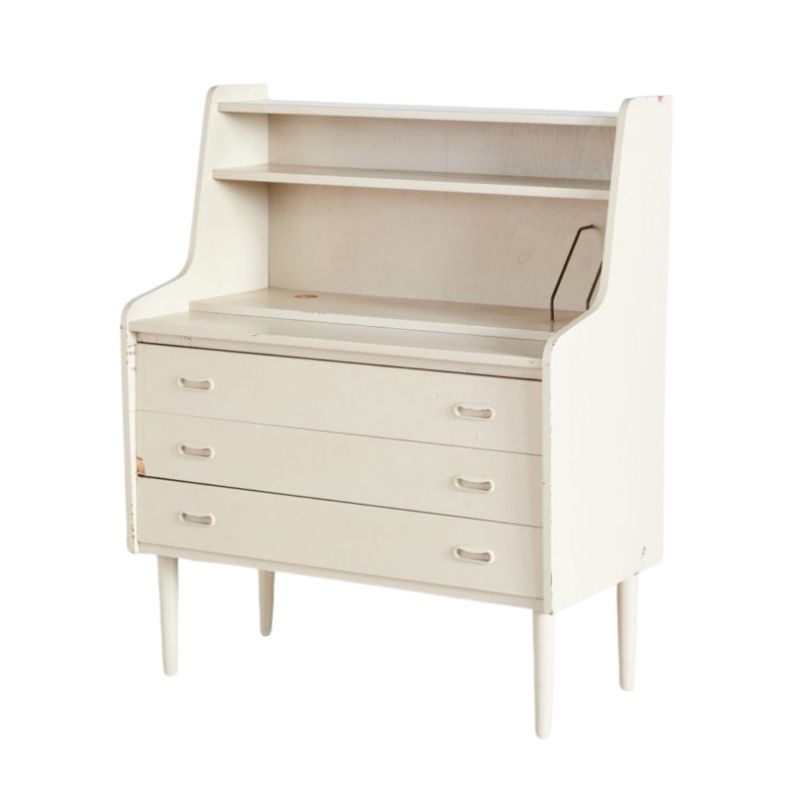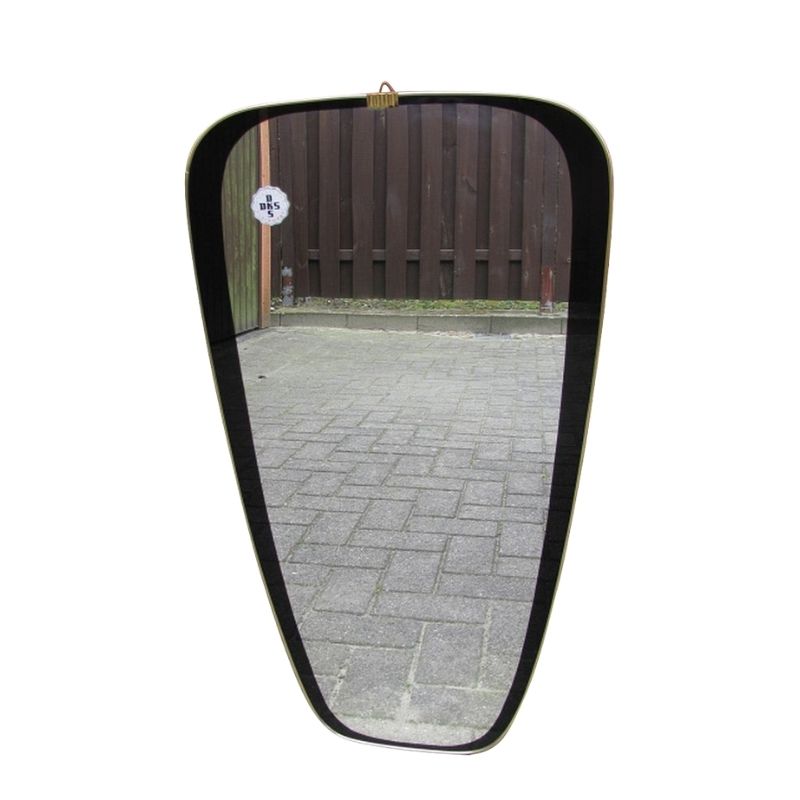The older woman who consigned these said they had belonged to her mother. This was originally a set of three bronze sculptures. Sadly, someone purchased just one and broke up the set in the weeks before I found them. All three of these depict a figure with a large oversized mask. The missing figure had a large mask of just one eye. The female figure is a woman in a housedress with a mask of three triangles. The man in 40's style shorter pants and shirt , has a large gingerbread or golly mask.
I feel like I've seen a drawing of the woman at some point. In a museum in Chicago maybe when I was little? Ugh. Or are these masked figures something like Magritte's Son of Man and just making me feel like I've seen them before??
When my better half saw them he immediately said the woman's mask symbolized the trinity-both because it was a triangle and there were three of them-father son and holy ghost. And maybe the man was a "cardboard suit" type mask of the corporate world. I then wondered if the third figure was a child and the eye had symbolized how children tend to see a lot but see just themselves??? Or maybe it was a third sort of religion-zoroastrianism? I'll never know because some greedy idiot gobbled up just one piece and the story won't be told now.
In any case, ideas on the artist? They are solid bronze, no markings. Guessing 30's or 40's? Maybe some sort of WPA thing? Has anyone seem something like this?
I bought them because they were gnawing at me and I was drawn to them. But I would love to know their story and finding the artist would help. It's also going to drive me crazy because I feel like I've seen a pencil drawing of these before. Where? Where?
Thank you.


Keewee, what curious little figures! I don't blame you for snagging them.
Sorry I can't be of any help with ID of subject or artist, but they appear to be high-quality castings and I think your guess as to period is good. They could have come from almost anywhere, but there's little question that they were at least semi-professionally produced. It's certainly a mystery that they are not marked.
Good luck with your investigation. Please post any results!
Thanks. I don't know anything about bronze sculptures except that they're usually nudes, some figures from Greek Classical mythology, or something from nature. Can you educate me a little? What makes a high quality cast versus low? I looked around on line and saw videos about how low quality reproductions look, but they were comparing highly detailed bronze artists like Remington with Chinese knock offs of Remingtons. With this it's harder to tell because the sculpture is a more blunt, modern, style. The details are sharp, but the style is not as detailed as what you normally see sculpture artists working in.
My other guess was that it would have had to have been, as you said, a semi professional artist because, again, guessing, that back in the day it would have been too expensive for the amateur to dabble in bronze. Casting bronze would require so much more equipment than painting. Was bronze and expensive medium to work in? Especially around the wars when those sorts of materials were being rationed?
Ultimately I purchased them because they spoke to me. I am infinitely saddened that the third one is out on it's own somewhere because the three of them together told a story and would have been more of a clue as to their origin.
Well, it would be nice to see the undersides, but there don't appear to be many pits or voids in the smooth areas that would indicate impurities in the alloy or poor quality molds. The details, such as they are, look crisp and well-defined. Also, the amount of hand work involved in the finishing and the overall quality of the brown patina (which looks original) indicates to me that someone went to some effort and took care with the surface. A quality casting will have a consistent wall thickness throughout and few, if any, repairs to voids or thin areas. You can get a sense of this by tapping on different areas with a fingernail or a chopstick, or something, and listening for differences. It gets more involved the bigger the castings are, of course.
Artists typically contract foundries to cast their work in bronze. In the US, there were many smaller foundries common to any larger manufacturing centers. Some specialized in casting artwork, but others might cast anything a client wanted, especially the smaller operations. There are far fewer today, but they're still around here and there, still doing it pretty much exactly they way it was done a hundred years ago.
If you need any help, please contact us at – info@designaddict.com









